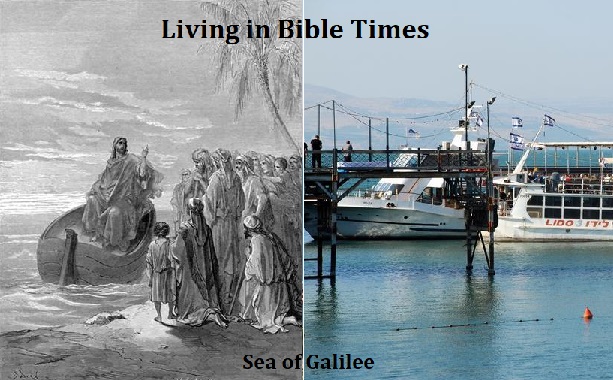
As Christians and devoted readers of scripture, we often try our best to imagine what it would have been like to live in Bible times. In the last century, there have been numerous attempts at reenacting the gospel story in film. We wonder, “Was that director’s version of events really accurate for the times and culture?” What would it have been like to actually live in Bible times? When did biblical times end? Was it at the crucifixion? Was it when, as Christ foretold, Jerusalem was again destroyed? Was it with Apostle John on the Island of Patmos?
Living in Modern times
If someone were to ask you what era in history we live in, the majority of us would likely respond, “We live in modern times.” The question arises, “When did modern times begin?” Often, we tie modern times to an invention that significantly changed the way people on earth live. The invention of the train, the plane, the electric light bulb, maybe the telephone, or the radio, definitely the television, and now the computer come to mind. The word modern has been in used in some context since the sixteenth century. You might believe in God, but those Bible times and antiquated ways of thinking, they are far behind us.
As a Christian, I find modernity, while very convenient for the ease of daily living, it is at the same time very mesmerizing and highly distractive from the God’s theme and purpose in the saga of history. Every day that passes is another page in the unfolding story, yet we do not recognize, or at best, tend to ignore that there is an actual author. This view is not taking poetic license. God is intimately involved with both the small and large picture of life. Are we not a part of His continuing story?
his Mystery in history
Not only is God orchestrating world events, He has revealed the outline and focus of history in His word. The prophet Daniel, the Lord Jesus, and the Apostle John, as well as others, foretell literal events and the rise of kingdoms of history, those which began in Daniel’s time, resulting in the first advent of Christ. Jesus expands on the prophet Daniel, preparing us for the trials ahead. Some were to be sooner than others. Jerusalem fell in 70 A.D. a second time fulfilling the words of Jesus, yet Daniel’s words still fresh on Christ’s lips spoke of a future for the great city. The ball is passed to John next, and he, caught up to heaven, reveals to us an end to history so dramatic and fantastic that its been figuratively rewritten into symbolic meaninglessness by interpretations of many modern theologians. John writes into the flow of the final fourth kingdom of the world mentioned by Daniel. The perseverance of the Roman Empire throughout history, according to Daniel, ties into these last days. What? Rome fell. Don’t let anyone tell you that. The eastern portion continued, and the west was eventually reclaimed as the Holy Roman Empire. The empire began to dissolve during Napoleon’s conquest and retreated into Germany and Austria until WWI. It was shortly before the war that the Aliyah, return of the Jews to the Holy Land, was gaining some momentum. The Balfour Declaration in Britain during 1917 brought a ray of hope for a wider expansion of the movement but stalled two decades due to international debate. Then, through the horror of WWII, God called the Jews home. Now I know why I should have stayed awake in my Western Civ class. God was clearly fulfilling, what is now, Bible history up and through the twentieth century until the present time.
Thy Kingdom Come
Is hope of a literal coming kingdom of righteousness lost? Not for many of us. We now live in a day looked forward to by the prophets. It’s a day when the Great City has been reborn. The rebirth of Jerusalem, as the capital of the Jewish nation, has been a couple of generations in the making. Pray for the peace of Jerusalem admonishes Psalm 122. This is our narrow focus. The focus and intensity of the final chapters of history play out here. In contrast, we are charged with the wide focus of Matthew 24:14, and this gospel of the kingdom will be preached in the whole world as a testimony to all nations, and then the end will come.
This charge seems to be a reality in the making for this next generation according to Wycliffe Bible translators. Coincidence, or is scripture coming alive right before our eyes? So, if we are living at a time when predicted biblical events are occurring, dare we say, we are living in Bible times? I say, “Be brave, be bold, and go against the flow.” Next time the discussion gets around to the wonders of our modern times, there’s your opportunity. Hijack the topic. We also live in Bible times.